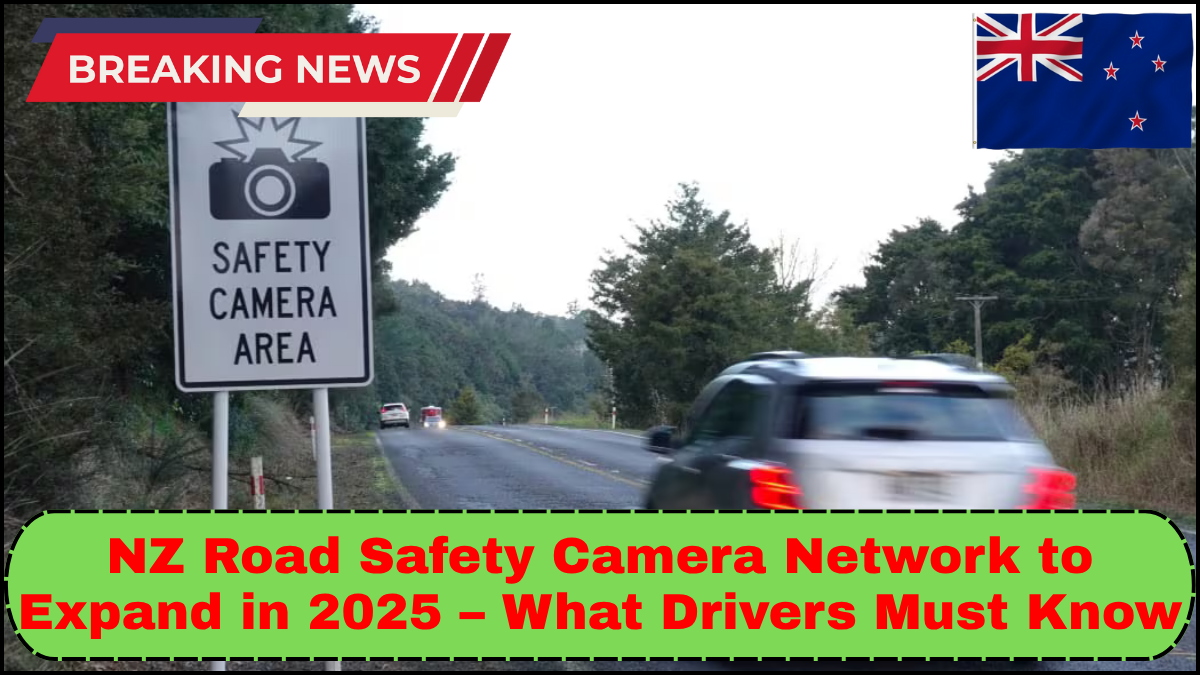New Zealand is stepping up its efforts to reduce road fatalities and improve public safety with a major upgrade to its traffic enforcement infrastructure. The NZ Road Safety Camera Expansion 2025 is set to roll out next year, and drivers across the country should be prepared for significant changes.

Why Is the Camera Network Being Expanded?
The expansion of the NZ speed cameras network is part of the Government’s Road to Zero strategy, which aims to cut road deaths and serious injuries by 40% by 2030. With over 300 lives lost on New Zealand roads in 2023 alone, the urgency is real. Speed remains one of the leading contributors to fatal crashes, and automated enforcement has been proven to be one of the most effective ways to curb dangerous driving behavior.
What the Expansion Includes
The NZ Road Safety Camera Expansion 2025 will be the largest investment in automated enforcement since the program began. Key components of the expansion include:
- Increased number of static cameras: Over 100 new fixed speed cameras will be deployed at high-risk locations.
- Red light cameras at intersections: Intersections in major urban centers like Auckland, Wellington, and Christchurch will see a surge in red-light enforcement.
- Mobile camera units: A fleet of upgraded mobile units will be deployed nationwide, covering both urban and rural areas.
- Point-to-point cameras: These cameras measure average speed over a stretch of road, discouraging drivers from simply slowing down near cameras.
- Upgraded technology: The new cameras will use advanced imaging, real-time analytics, and better license plate recognition capabilities.
What This Means for Drivers
Motorists will need to adapt to a landscape where traffic enforcement is more consistent, less visible, and technologically more sophisticated.
Expect Fewer Warnings and More Infringements
Unlike in the past, the focus will be less on issuing warnings and more on immediate penalties. These changes reflect a shift in philosophy—from reactive to preventative.
Data-Driven Enforcement
The camera placements are based on crash data, vehicle speeds, and road use patterns. This ensures that the enforcement is targeted at locations where it’s most needed, not just easy revenue generators.
Rural Drivers Take Note
Many rural drivers may have previously felt insulated from speed enforcement due to the limited camera presence. That’s changing. The new mobile units and point-to-point systems will be deployed in regions that have historically seen higher crash rates.
Privacy and Data Use
There has been public concern over how data from these cameras will be used. The Ministry of Transport and NZ Police have assured that the data will only be used for traffic enforcement and road safety analysis. There will be strict governance protocols in place, with regular audits to prevent misuse.
Supporting Infrastructure
Alongside the camera rollout, the government is also investing in better signage and public awareness campaigns. Expect to see new warning signs and educational efforts to ensure drivers understand the changes and consequences.
The Bottom Line
The NZ Road Safety Camera Expansion 2025 isn’t just about catching speeders. It’s a strategic move to build a safer, more responsible driving culture. The days of getting away with speeding on lesser-patrolled roads are numbered. Whether you’re commuting daily or heading out for a weekend drive, the new system will be watching.
Staying informed and adjusting your driving habits now is the best way to avoid fines and, more importantly, stay safe.
FAQs
Q: When will the new speed cameras go live?
A: The rollout is scheduled to begin in early 2025, with full deployment expected by mid-2026.
Q: Will I be notified if I’m caught speeding?
A: Yes. Infringement notices will be sent by mail or digitally, depending on your registered contact information.
Q: Are point-to-point cameras already used in New Zealand?
A: Currently, they are limited, but the 2025 expansion will introduce them in several key corridors.
Q: Can I contest a camera-issued speeding ticket?
A: Yes. You have the right to dispute any infringement notice through the appropriate legal channels.
Q: Are the cameras active 24/7?
A: Most fixed cameras and many mobile units operate continuously, regardless of time or weather conditions.
click here to learn more